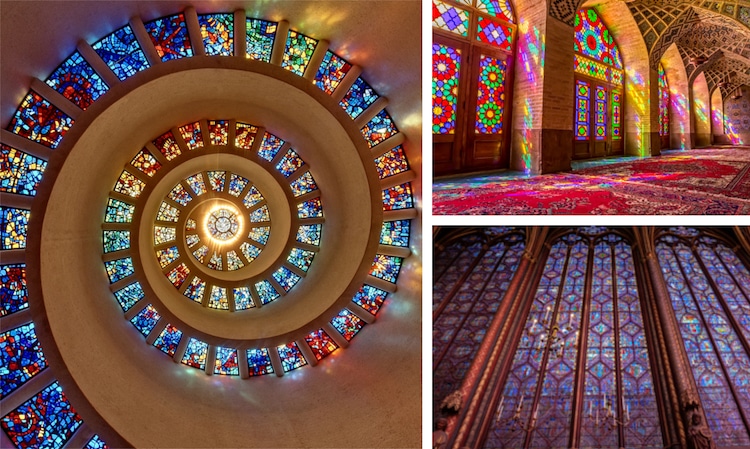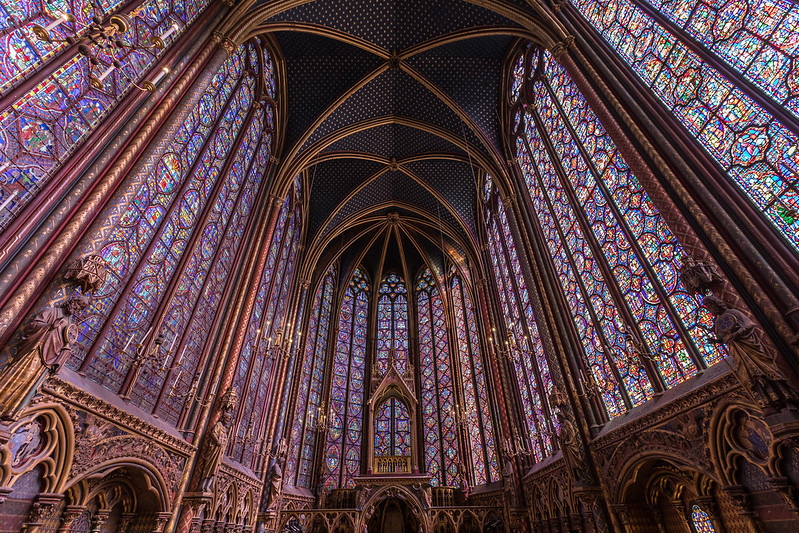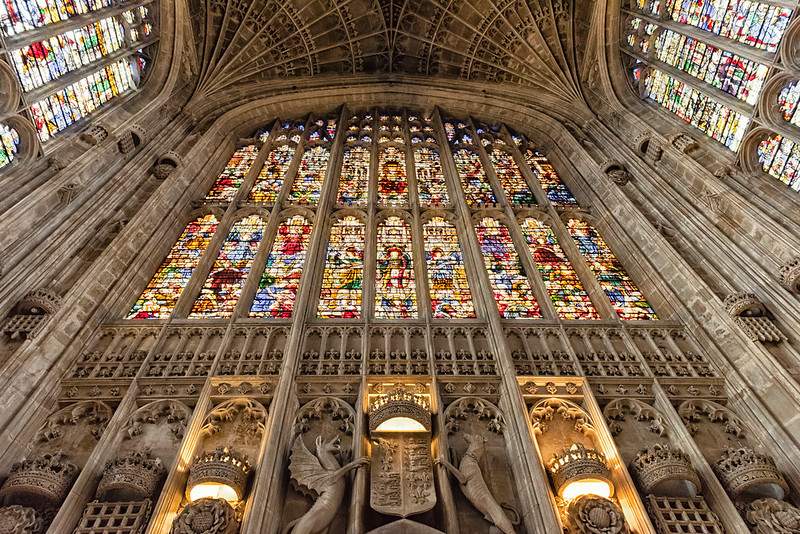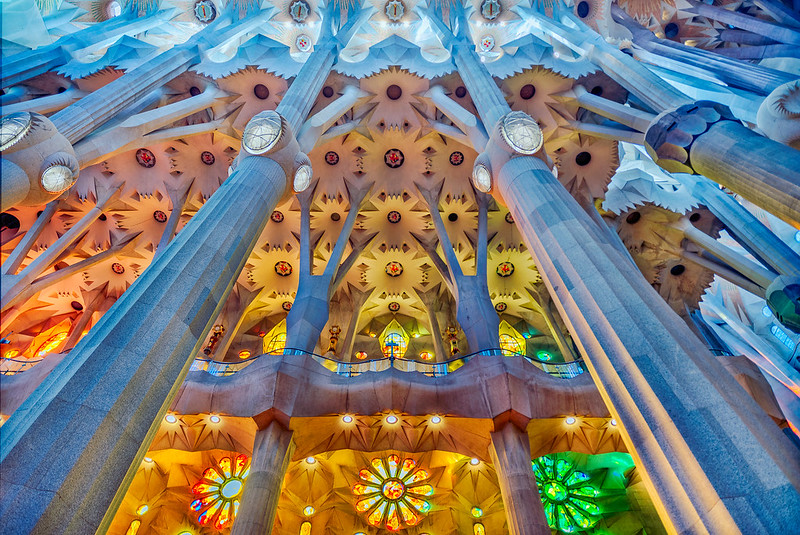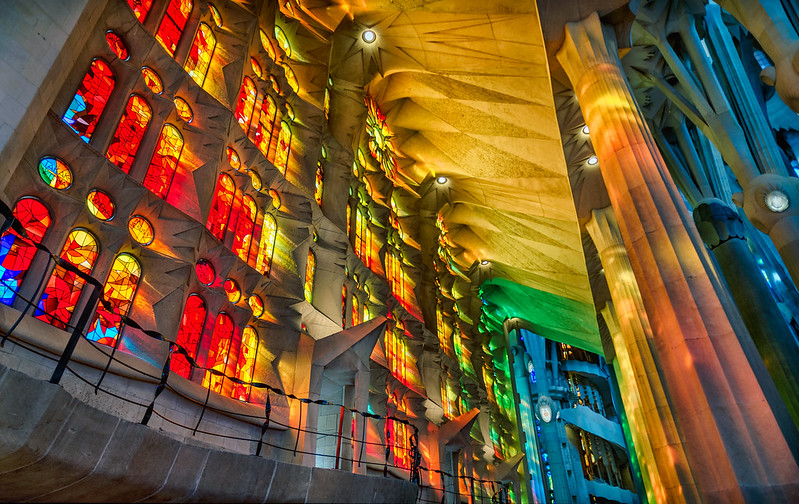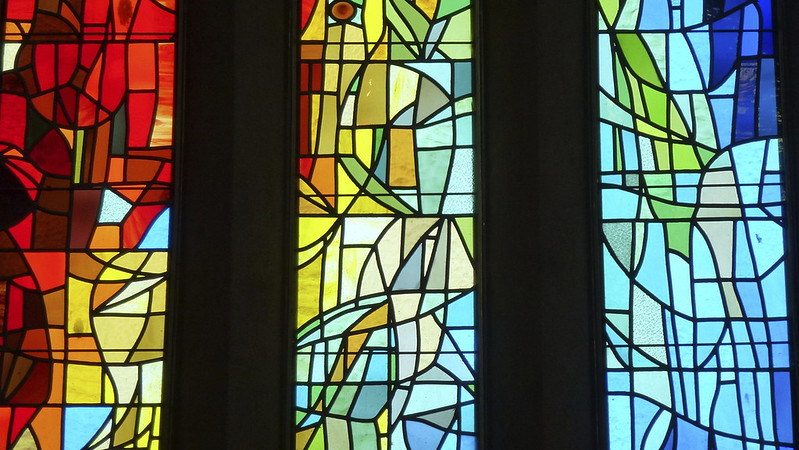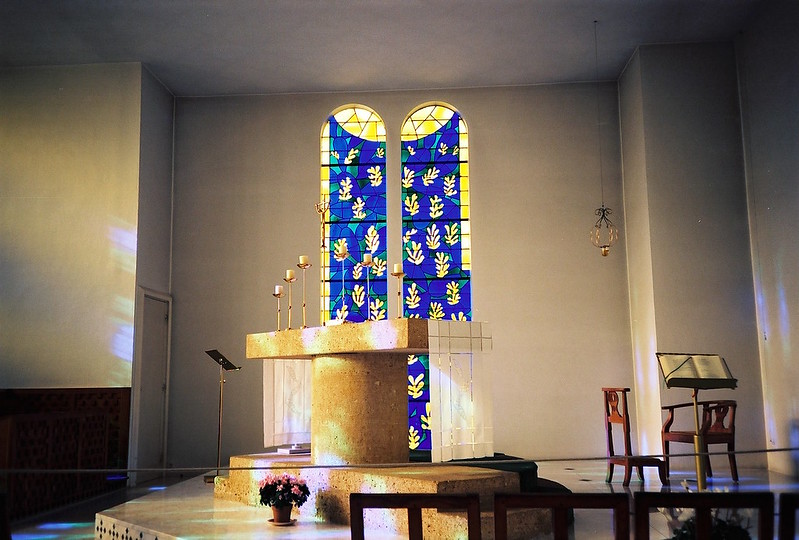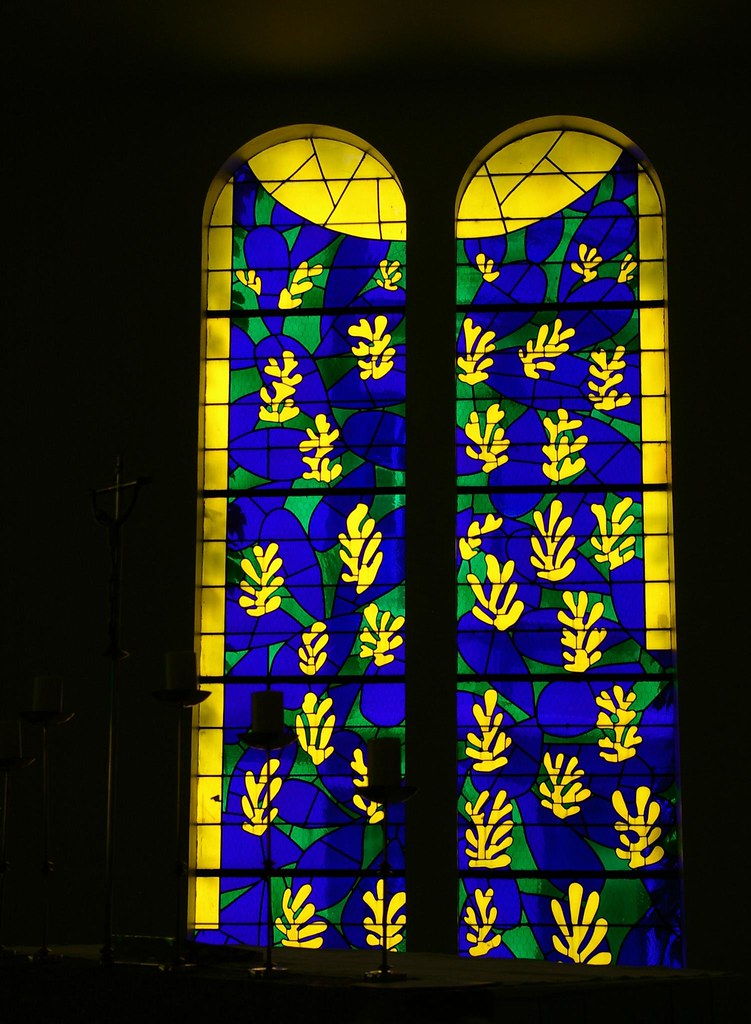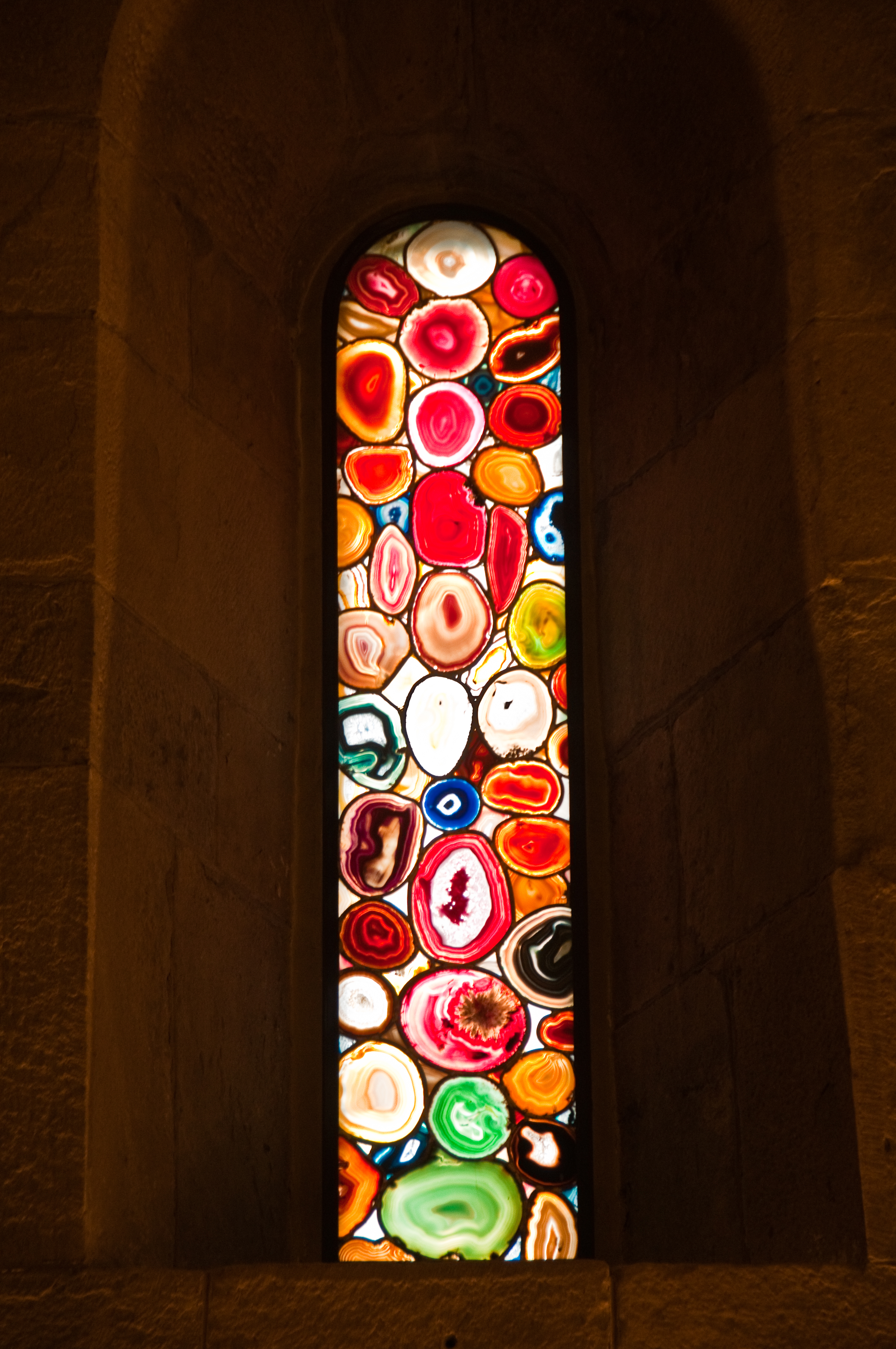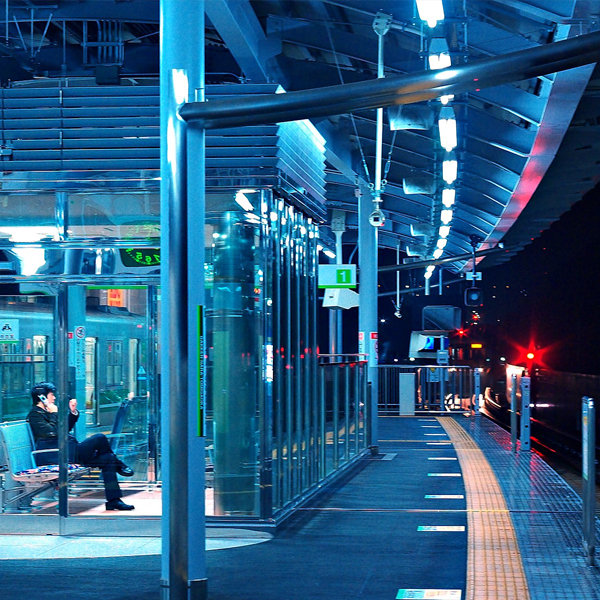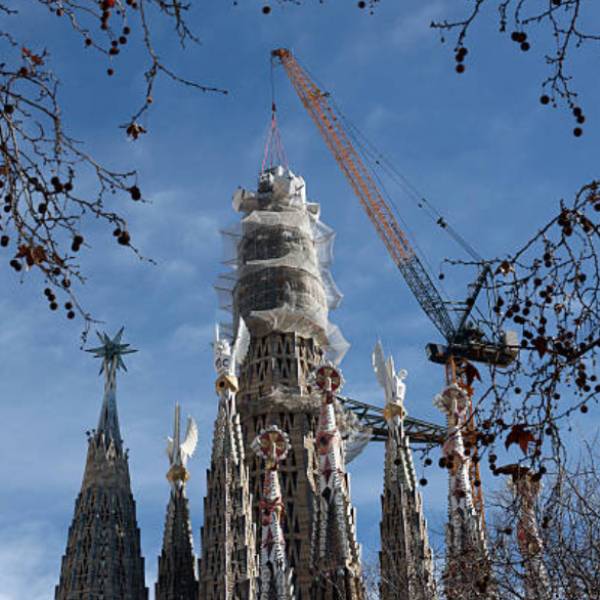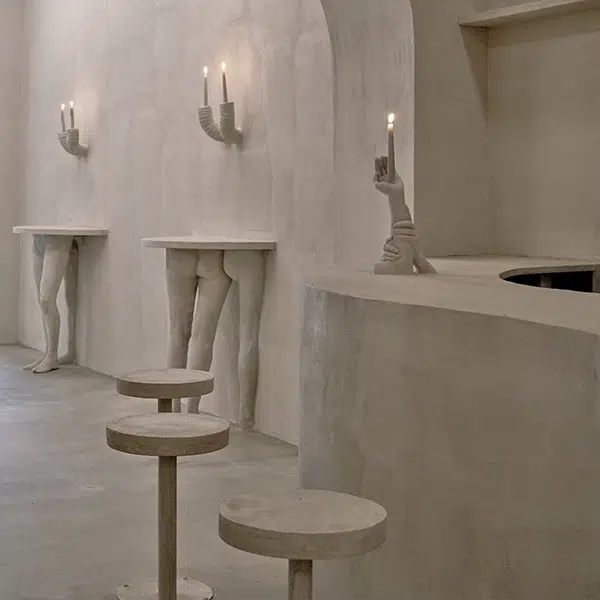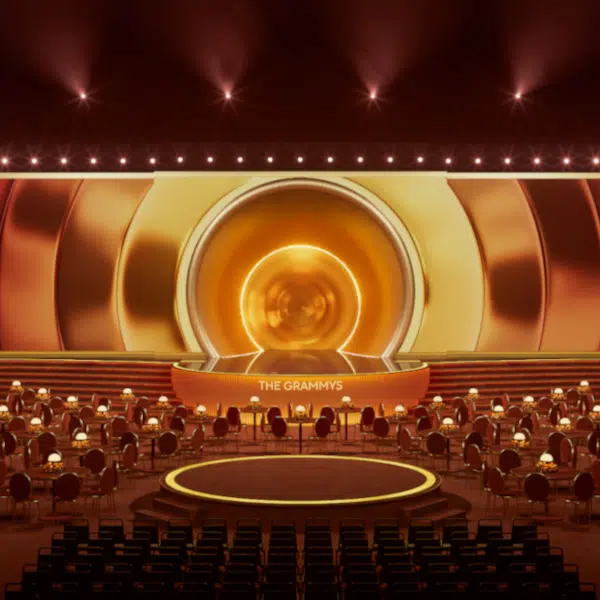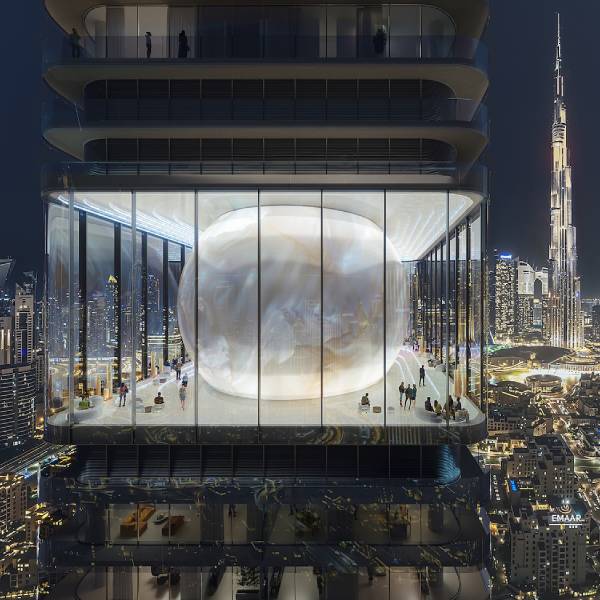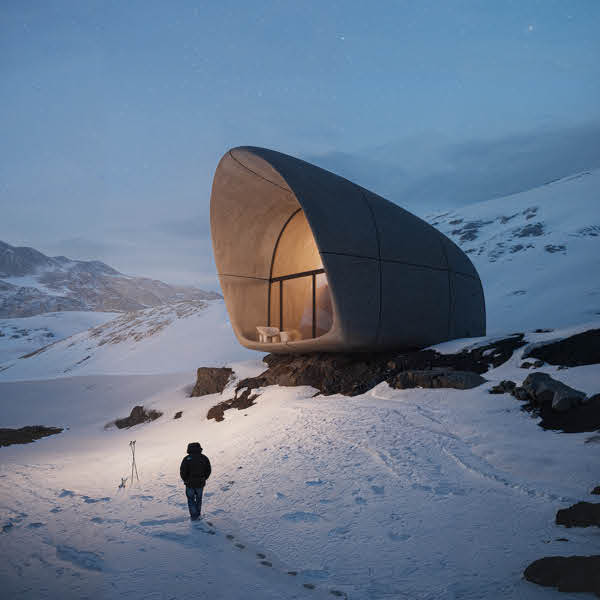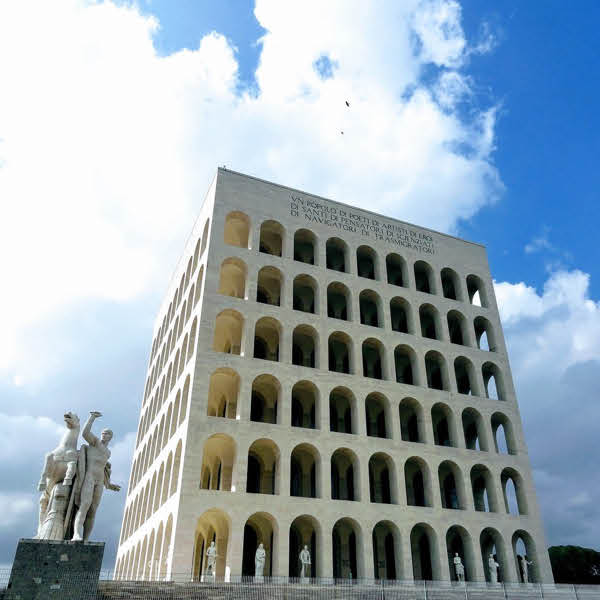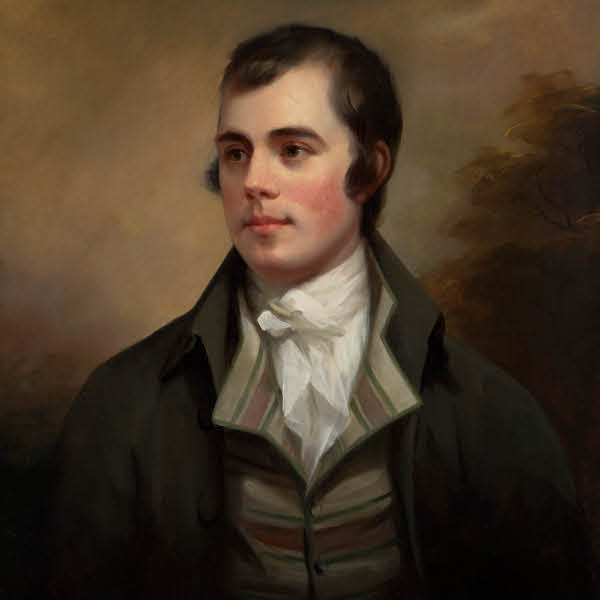Exquisitely crafted and effortlessly ethereal, stained glass windows have been prevalent in places of worship for centuries. Though often associated with Gothic cathedrals, the colorful panes can be found in a wide array of religious sites, from mesmerizing mosques to modern churches.
Here, we take a tour of some of the most fantastic famous stained glass windows across the globe, from medieval masterpieces to contemporary creations. While the dazzling pieces drastically range in scale and style, each one possesses the ability to transform an earthly site into a transcendent kaleidoscope of colors.
Discover 10 famous stained glass windows from around the world.
Sainte-Chapelle – Built in the 13th century, Paris, France
Described as the “jewel of the Rayonnant Gothic period,” Paris' stunning Sainte-Chapelle was built in the 13th century by King Louis IX. Initially intended to house precious relics, Sainte-Chapelle is particularly renowned for its collection of 15 windows. Measuring nearly 50 feet in height, each monumental window depicts a sparkling interpretation of a biblical scene rendered in gem-like tones and impressive detail. In addition to these vertical masterpieces, the medieval chapel is also celebrated for the rich tracery and kaleidoscopic colors of its rose window.
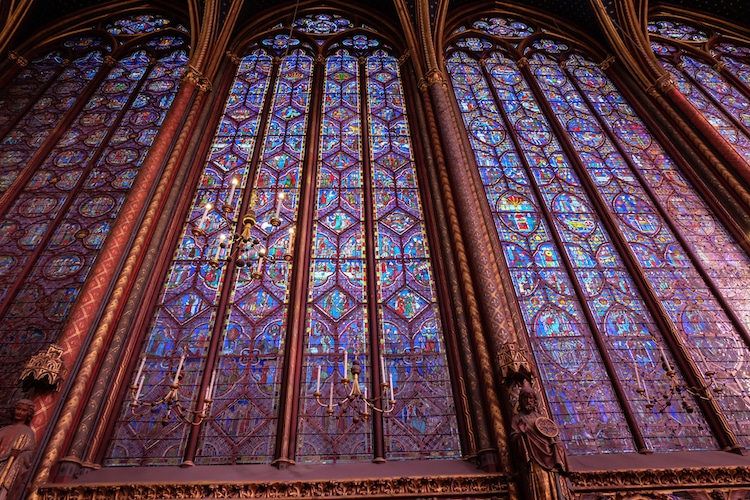
Interiors of the Sainte-Chapelle (Photo: Stock Photos from wjarek/Shutterstock)
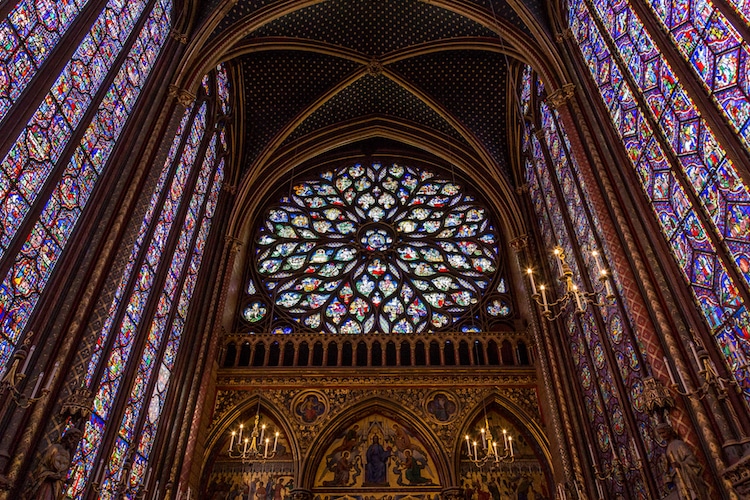
The Sainte Chapelle Holy Chapel in Paris, France (Photo: Stock Photos from Gilmanshin/Shutterstock)
Chartres Cathedral – Built in the 13th century, Chartres, France
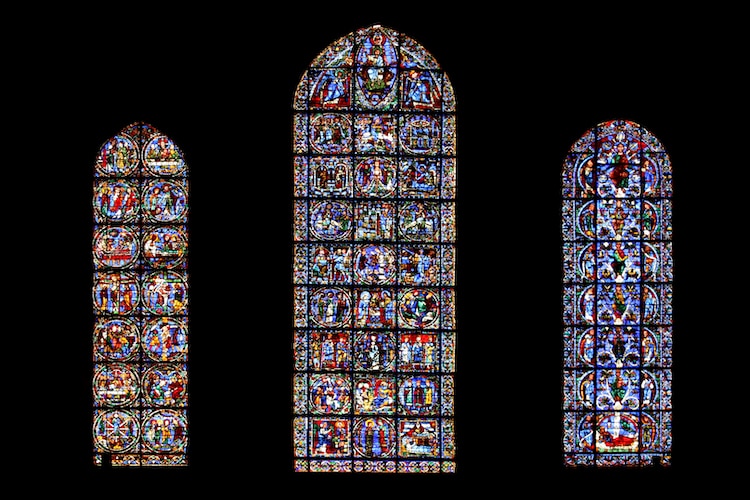
Stained glass windows at Chartres Cathedral, Chartres, France (Photo: Eusebius via Wikimedia Commons, Public domain)
Located about 50 miles away from Paris is the Chartres Cathedral. Considered to be a “high point of French Gothic art” this 13th-century structure was built over the site of an older church that had burned down. One of the additions that was made to the church during its reconstruction was a series of 167 ornate stained glass windows, which have largely remained intact to this day.
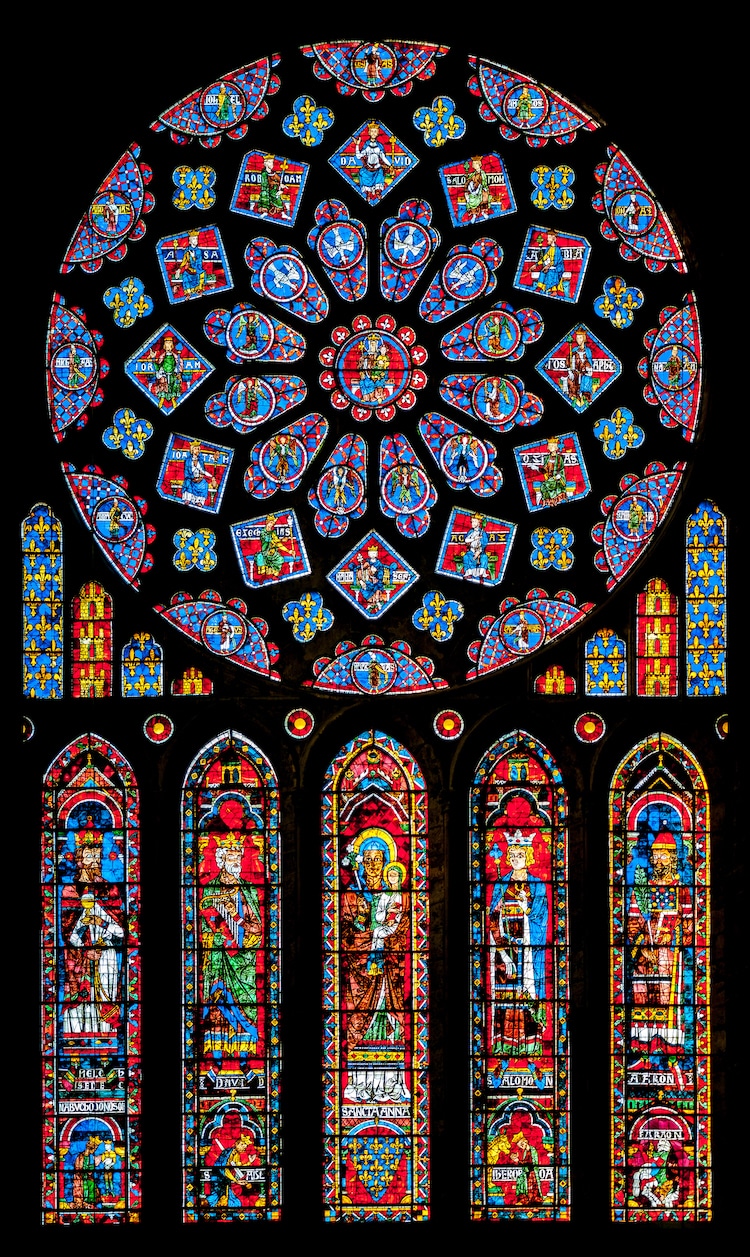
North transept rose window, Chartres Window, Chartres France (Photo: PtrQs via Wikimedia Commons, CC BY-SA 4.0)
York Minster – Built in the 15th century, York, England
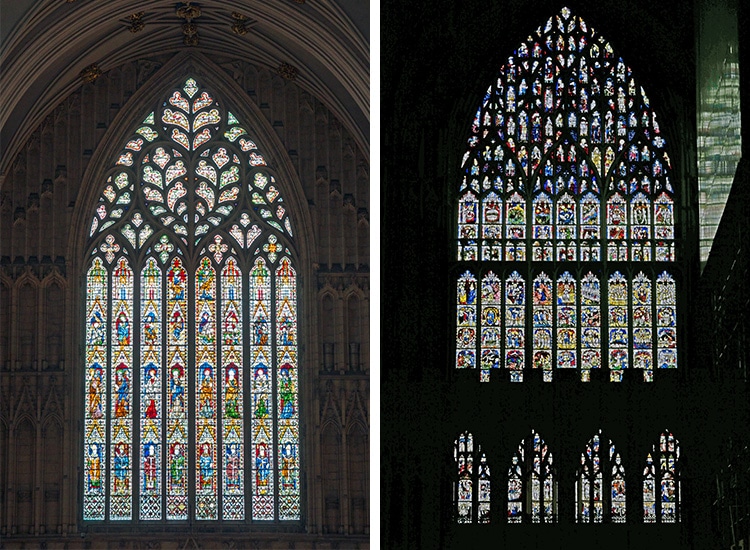
Left: The Great West Window, York Minster, York, England (Photo: Peter K Burian via Wikimedia Commons, CC BY-SA 4.0)
Right: The Great East Window, York Minster, York, England (Photo: amandabhslater via Wikimedia Commons, CC BY-SA 2.0)
The Cathedral and Metropolitical Church of Saint Peter in York, better known as the York Minster, is a striking 15th-century cathedral completed in 1472. It features a remarkable collection of stained glass, some of which dates back to the 12th century. Its most noticeable attribute is the Great East Window. Created by John Thornton, this piece depicts scenes from the Book of Revelation and is the largest expanse of medieval stained glass in England.
King’s College Chapel – Built between the late 15th and early 16th centuries, Cambridge, England
Throughout the late 15th and early 16th centuries, a beautiful Gothic chapel was erected in the University of Cambridge's King's College. In addition to mesmerizing fan vaulting and a painting by Baroque master Peter Paul Rubens, King's College Chapel is famous for its treasure trove of narrative windows. The iconography featured in the splendid panes incorporates both religious and royal motifs and illustrates the artistic advancements of England's late Gothic period.
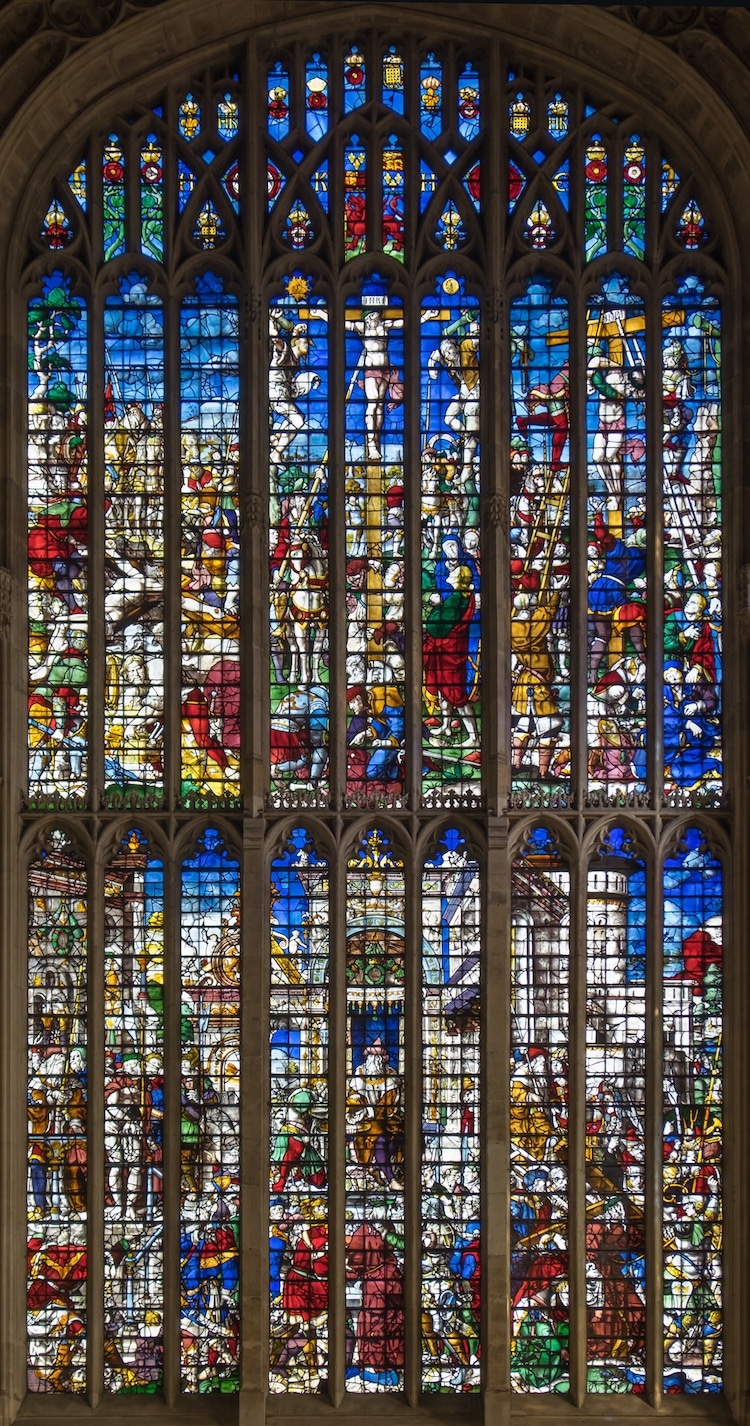
King's College Chapel (Photo: DeFacto via Wikimedia Commons, CC BY-SA 4.0)
Nasir al-Mulk Mosque – Build in the 19th century, Shiraz, Iran
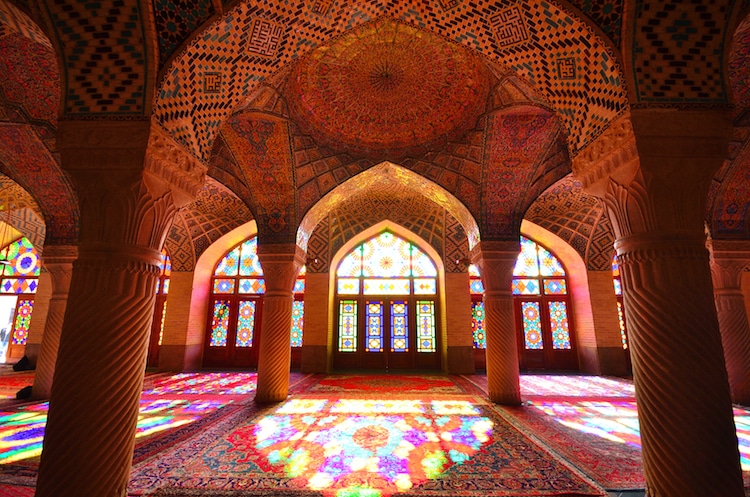
The Pink Mosque (Photo: Stock Photos from TripDeeDeephoto/Shutterstock)
The Nasir al-Mulk Mosque, a 19th-century place of worship in Shiraz, Iran, is a breathtaking example of Islamic architecture. Featuring a façade decorated with a row of ornamental stained glass windows, the “Pink Mosque” offers worshippers a sunlit spectacle every day at dawn: as the morning light shines through the panes, it illuminates the interior's rose-colored tiles and patterned Persian carpet with an enchanting array of vivid colors.
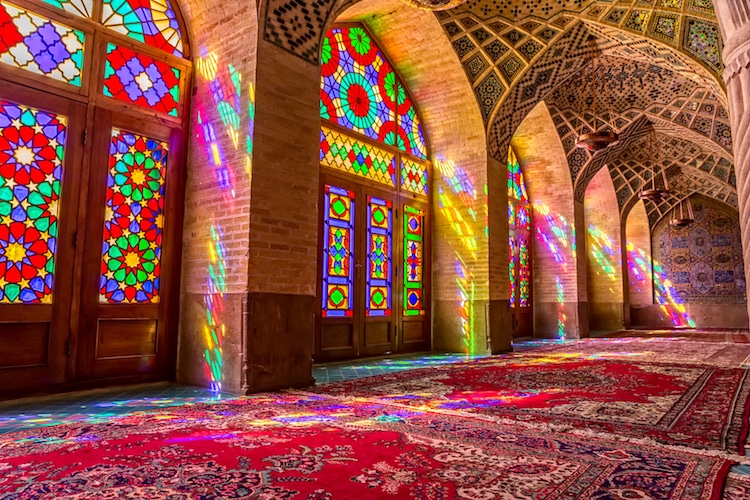
The Pink Mosque (Photo: Stock Photos from OPIS Zagreb/Shutterstock)
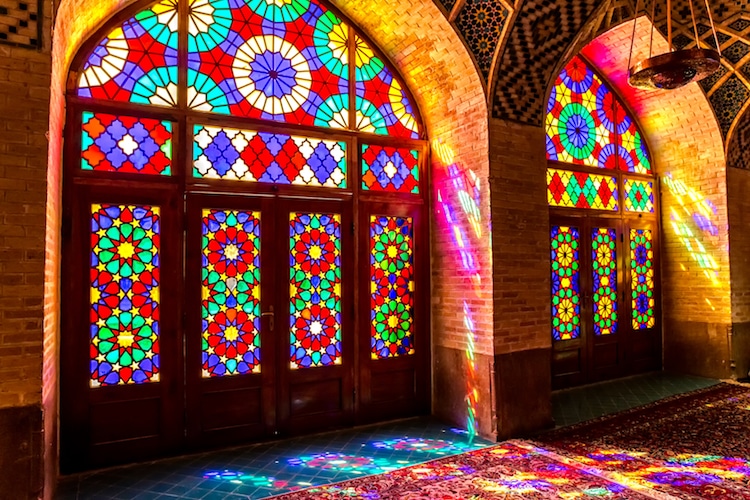
The Pink Mosque (Photo: Stock Photos from OPIS Zagreb/Shutterstock)
La Sagrada Família – Designed in the 19th century, Barcelona, Spain
Designed by master of modernisme Antoni Gaudí in the late 19th century, La Sagrada Família is one of Barcelona's most famous destinations. On top of its whimsical towers and mesmerizing mosaics, the ever-growing church is known for its fantastic stained glass windows. Capturing the “expressivity and grandeur” of Gaudí's vision, the multicolor windows range in shape and color scheme, making the basilica's avant-garde interior even more eye-catching.
The Rosary Chapel – Built between 1943–1949, Vence, France
Nestled in Vence, an idyllic commune in southeastern France, the Rosary Chapel was designed by modern artist Henri Matisse and built between 1943 and 1949. In addition to its minimalist spire and mosaic decorations, the tiny chapel features spectacular windows reminiscent of the artist's famous series of cut-outs. Each work of art features strong color contrasts and bold forms that, when illuminated by the sun, put a transcendent twist on Matisse's signature abstract aesthetic.
The Grossmunster –Built in the 11th century (windows added in the 20th and 21st centuries), Zurich, Switzerland
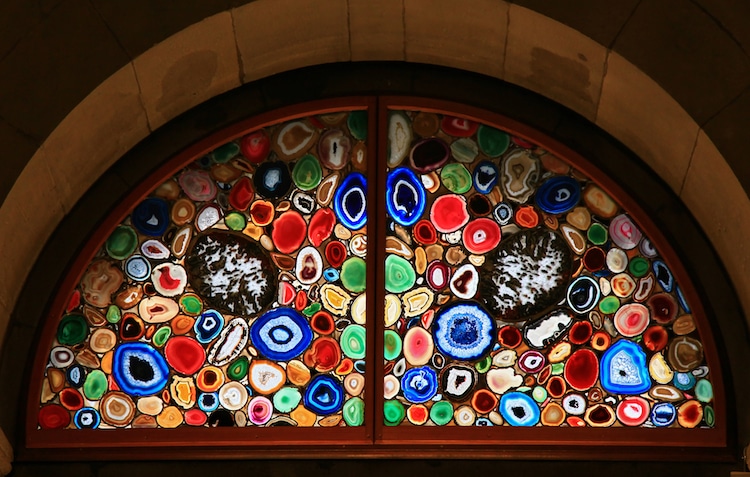
Stained-glass window in the Grossmunster (Photo: Stock Photos from Evgeny Murtola/Shutterstock)
The Grossmunster is an 11th-century Protestant church in Zurich, Switzerland. While the church was built in the Romanesque style—an approach known for its thick walls and subsequently small windows—it boasts a beautiful selection of stained glass. These spectacular windows were added in the 20th and 21st centuries, and include striking pieces by Pop Art icon Sigmar Polke.
Palau de la Música Catalana – Built between 1905–1908, Barcelona, Spain
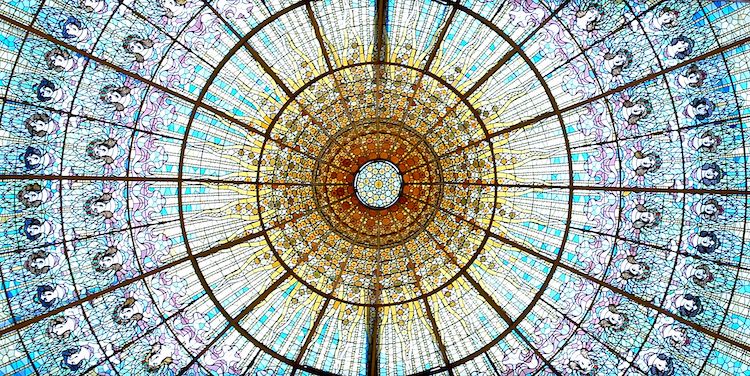
Stained glass window at the Palau de la Música Catalana, Barcelona, Spain (Photo: Josep Renalias via Wikimedia Commons, CC BY-SA 3.0)
Designed by modernista architect Lluís Domènech i Montaner and completed in 1908, the Palau de la Música Catalana is an extravagant concert hall in Barcelona, Spain. Its crowning jewel is the stained glass skylight designed by Antoni Rigalt in the auditorium, which is intended to resemble a blue sky with a sun in the center. Due to its massive size and translucence, the Palau de la Música Catalana is the only concert hall in Europe that is illuminated by natural light during daytime.
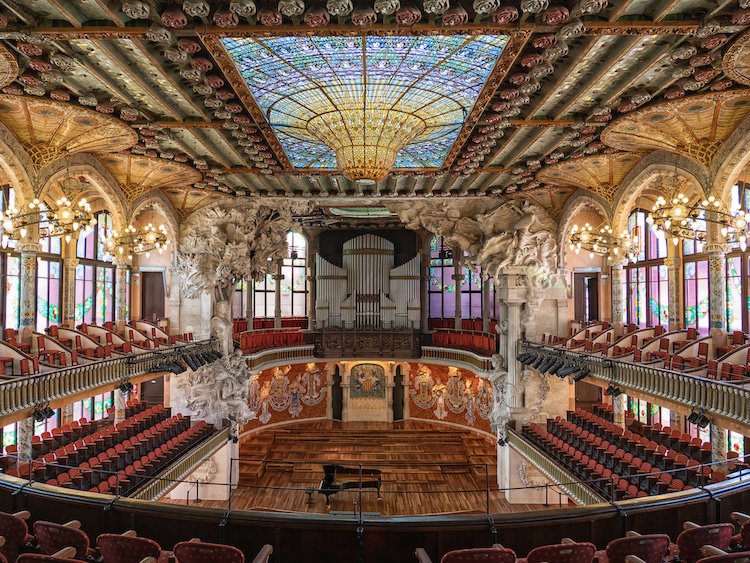
Palau de la Música Catalana, Barcelona, Spain (Photo: Tudoi61 via Wikimedia Commons, CC BY-SA 4.0)
The Chapel of Thanksgiving – Built in 1976, Dallas, Texas, USA
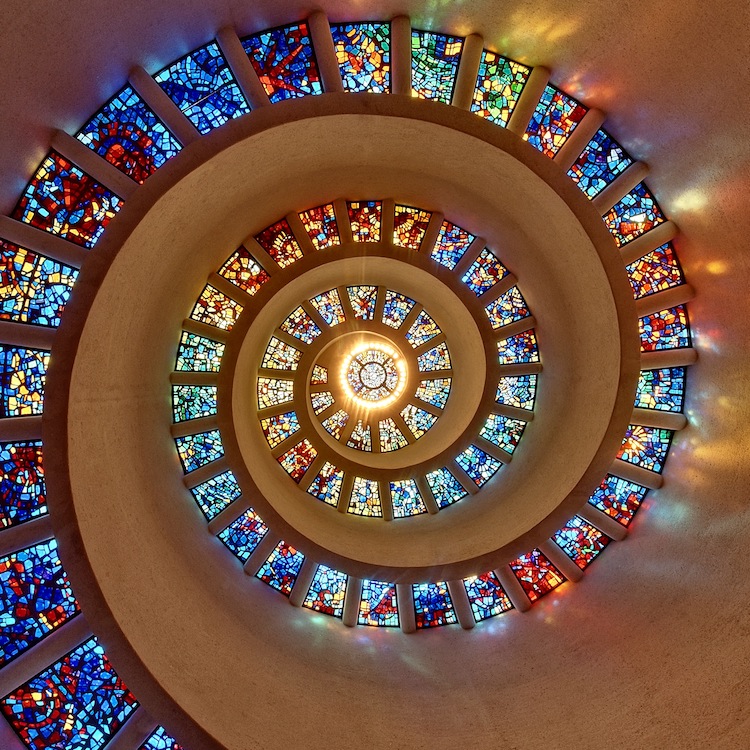
The Chapel of Thanksgiving (Photo: Daniel Parks via Wikimedia Commons , CC BY-SA 2.0)
The Chapel of Thanksgiving is a non-denominational building in downtown Dallas, Texas. Built in 1976, the site was designed “to promote the concept of giving thanks as a universal, human value.” The contemporary chapel celebrates this idea through a striking stained glass spiral that appears to change color as it twists toward the sky.
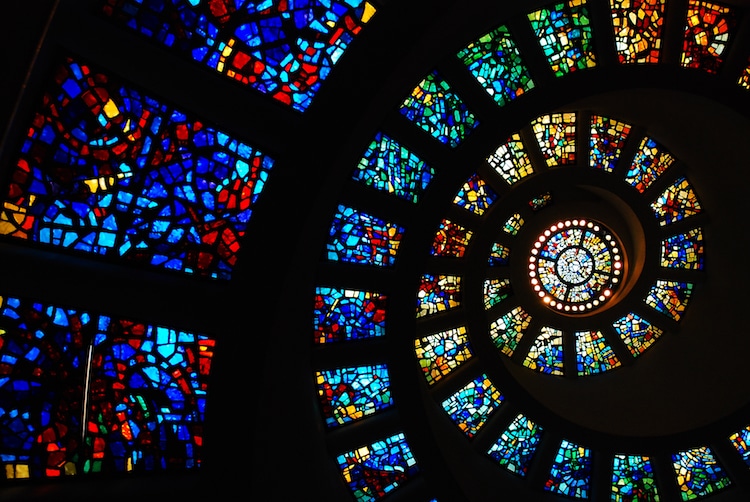
The Chapel of Thanksgiving (Photo: James Stock Photos from Kirkikis/Shutterstock)
This article has been edited and updated.
Related Articles:
8 Contemporary Stained Glass Artists Who Are Redefining the Ancient Craft
10 Must-See Sites of Iran’s Historical Architecture
Exploring the Fantastic History of Gargoyles in Gothic Architecture
